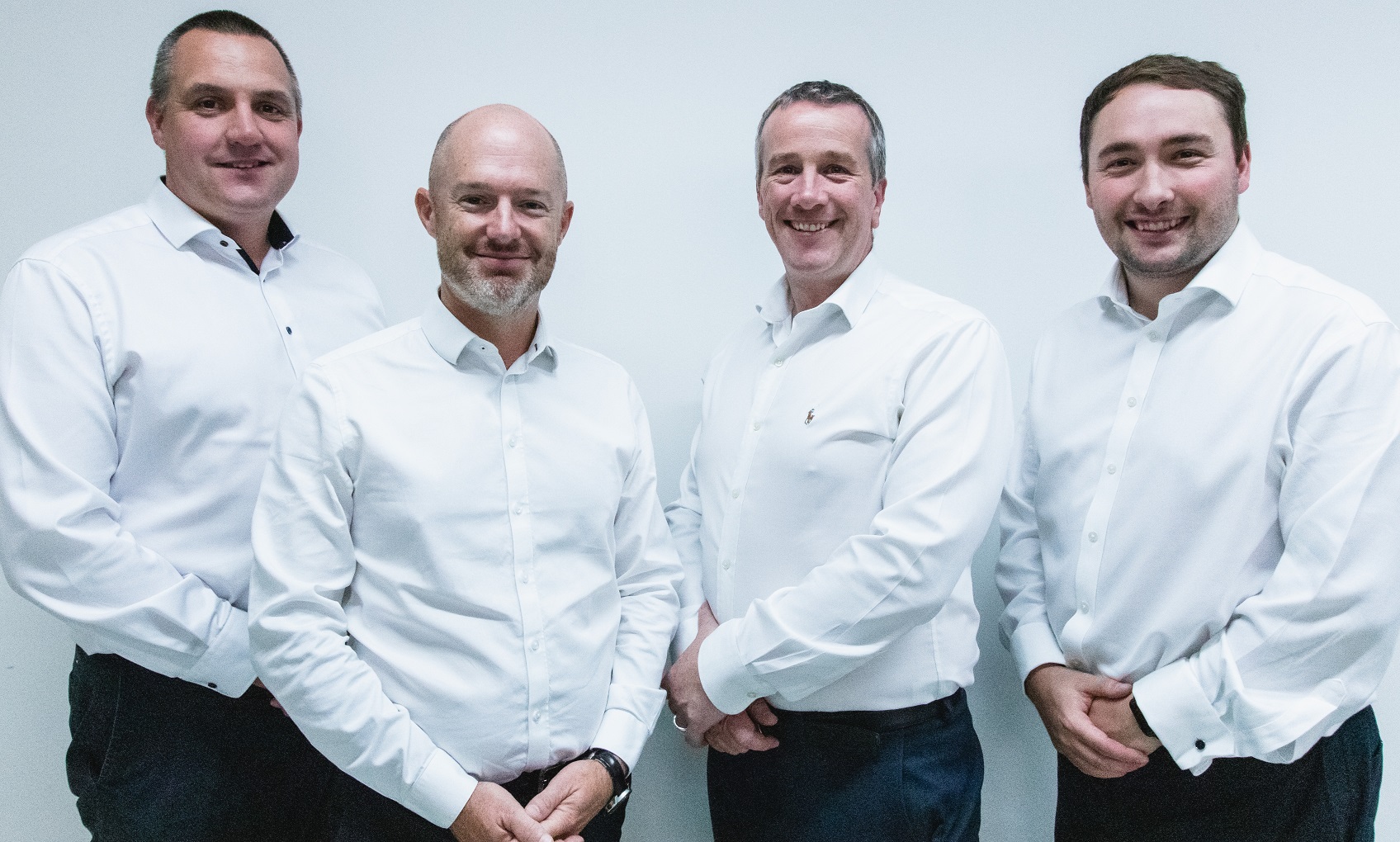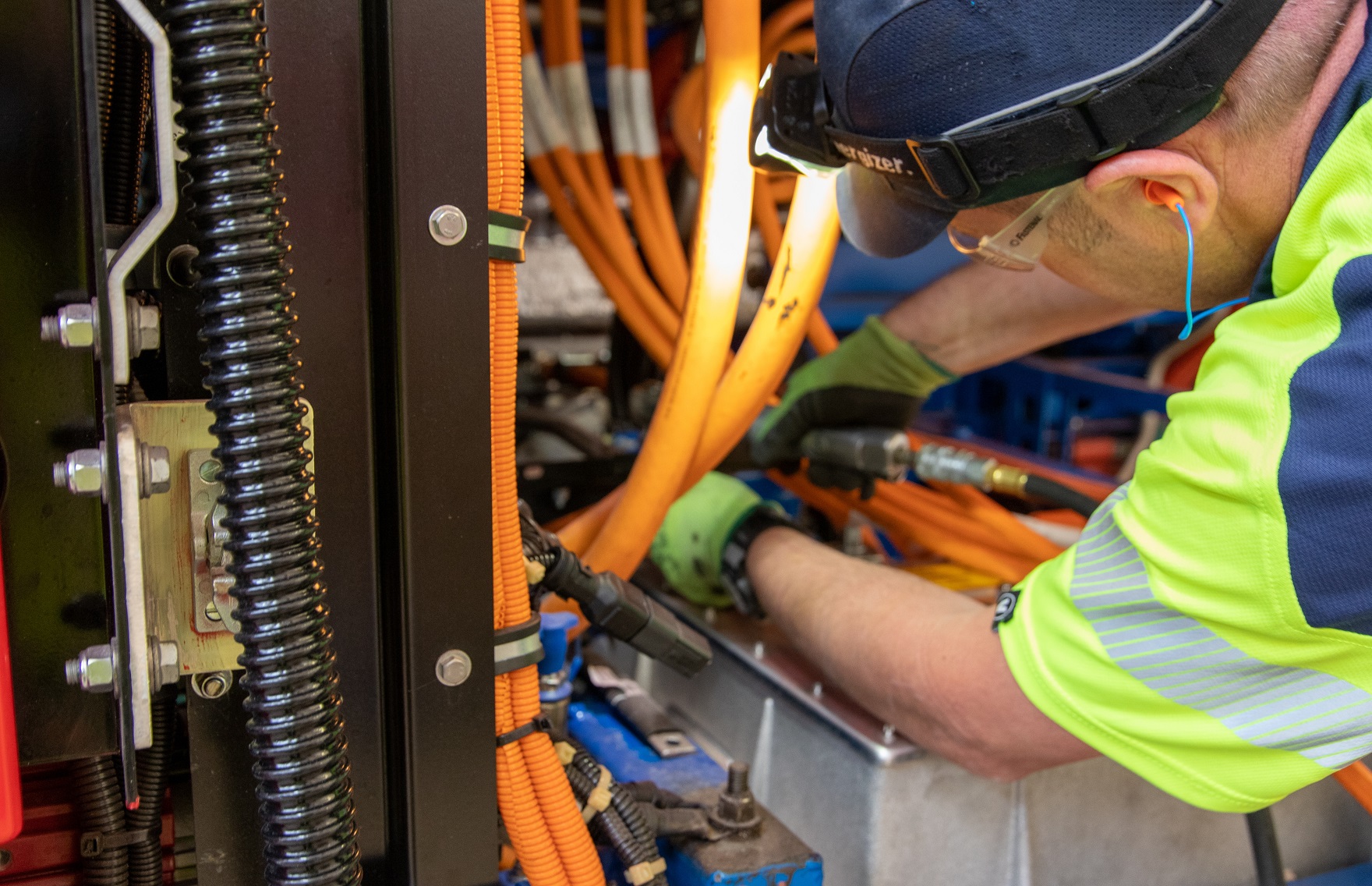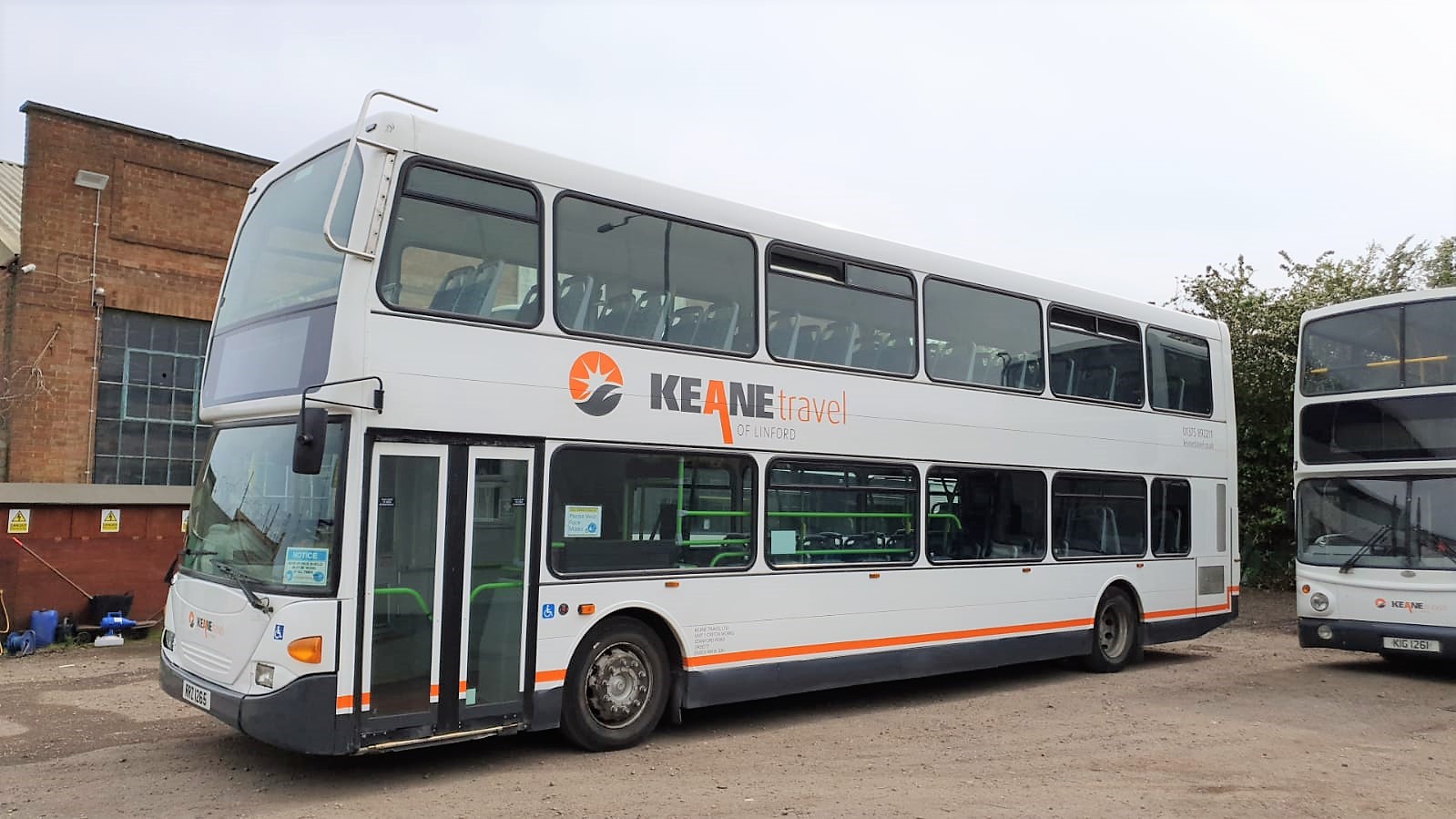External fleet maintenance has generated moderate take-up among coach and bus operators. AllServiceOne – a business that has been developed from bus manufacturer Wrightbus’s aftersales operation, and which launched in November – believes that it can expand that reach with a tailored approach extending from ‘full service’ provision with a predictive element to a simple supply of parts.
AllServiceOne falls within the Bamford Bus Company grouping. At its most extensive, the supplier’s offer will utilise a telematics-based comprehensive repair and maintenance package.
Away from routine maintenance, AllServiceOne also captures accident repair and refurbishment. While much talk at Bamford Bus Company subsidiaries surrounds zero-emission, AllServiceOne can support vehicles across the passenger-carrying sphere. That includes coaches, buses and minibuses of all marques and powertrain technologies, explains Head of Business Development Alex Gadd.
He adds that AllServiceOne is already heavily invested in the bus market. It supports 20,000 Wrightbus integral or bodied vehicles globally and Alex believes that external fleet support will become more prominent as the transition to zero-emission accelerates; the supplier says that in comprehensive form, it can help to extend the lives of existing fleets where needed.
AllServiceOne brings a flexible approach to support
Provision of human resource will extend from ‘man in a van’ for smaller customers to having AllServiceOne technicians embedded full-time within larger depots. For routine maintenance needs, a fixed monthly price approach can be utilised to give predictable outgoings for the customer.

As an example of the early scope of AllServiceOne’s offering, it has already seen interest from an operator of four vehicles. Discussions have also opened with a potential customer that has 30 minibuses.
At the opposite end of the scale, training delivered by the supplier has helped to develop a master technician with Metroline for the London operator’s Wrightbus StreetDeck Hydroliner hydrogen fuel cell-electric double-deckers.
That training work illustrates the breadth of aftersales capacity that AllServiceOne has. In addition to on-the-ground vehicle repair and maintenance, it will leverage a comprehensive back-office system that Alex says is “all about maximising uptime.”
There are two core elements to that platform. One is a central fleet maintenance dashboard, and the other is Wrightbus’s Uptime 365 telematics technology. They monitor vehicle health in real time. The system extends to older vehicles; it is already in use on some that are 15 years of age.
‘Sector transformation’ claimed by supplier’s MD
AllServiceOne Managing Director Ian Gillott boldly says that the telematics-based monitoring combined with repair and maintenance provision “will transform the sector.” Both are independent of vehicle OEM and are built around fleet reliability and efficiency, he adds. Artificial intelligence features to enable issues to be detected early.
The platform can be integrated with driver defect reporting. Through aggregation of data generated by on-vehicle systems, it allows what Ian adds is highly effective predictive fleet management. Variations in seasonality and route are taken account of in that forecasting. “The dashboard allows operators to understand the health of their vehicles in real time,” Ian continues.
It is closely integrated with the on-the-ground support facet of AllServiceOne’s offering. Analytics can be delivered on scales up to fleet-wide and on either a live or a historic basis. The dashboard can be integrated with charging providers for battery-electric vehicles, and AllServiceOne hopes to add other feeds – such as from CCTV and ticketing systems – in due course.
AllServiceOne Approach proven already elsewhere
AllServiceOne’s back-office has been developed from an existing platform used by JCB. Alex and Ian acknowledge that embedding the comprehensive AllServiceOne concept within the coach and bus industry will take time; when the idea was first rolled out with JCB customers, such work represented a multi-year task.

But the platform is now well-established in that sector. What that has allowed is a reduction in plant fleet sizes and optimised use of units that are retained.
“We know that the challenge will be in transitioning customers in coach and bus, and we accept that it will take time,” Alex says.
However, he believes that once the approach is established, it will quickly prove its worth. Increased uptime will translate to potential to cut spare vehicle coverage levels, and the predictive scope for maintenance interventions will reduce breakdowns.
Push notifications can be provided for vehicle-related matters, while parts sourcing is through an established global supply chain. That gives access to OEM components, those that have been remanufactured, and even second-hand items if required.
“We understand that guaranteed availability of parts is vital to operators’ ongoing productivity and success, which is why our spares stockholding is sophisticated and expansive,” Alex continues. The overall package represents a big promise, but evidence from other Bamford Bus Company projects suggests that it will be delivered.



























